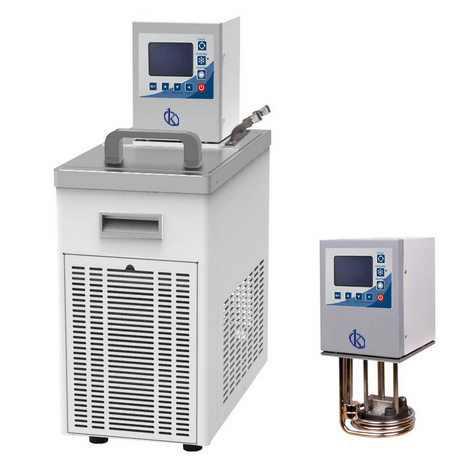Viscosity is a measure of the friction contained in a liquid. This friction resistance becomes evident as soon as one layer of the liquid is put into motion against another. The higher the friction, the greater the force needed to induce this movement, which is called “shearing.” Shearing occurs whenever liquids move or physically separate when poured, stained, sprayed, or mixed. High viscosity liquids require more force than low viscosity liquids.
Viscosity is an important and influential value in measuring liquids. Examples include liquids, semisolids, gases, and solids. Viscosimetry, as measured in a laboratory, is used to determine the quality and profitability of a product. This measure is in support of any person engaged in:
- Research and development.
- Quality control analysis.
- Fluid transfer.
- Other studies on the behavior of materials in flow.
For many manufacturers, viscometers have become an integral and important part of research and development programs as well as process control. From that point of view, it is understood that viscometry is often the fastest, most accurate and most reliable way to analyze the most important factors affecting the performance of the product.
Why measure the rheological behavior of liquids?
Why is it important to measure viscosity?” The answer lies in the experience of thousands of people who have already taken these measurements. This has allowed many useful statements and predictions to be made about the behavior of a wide range of products and has led to important insights into:
- The effects of processing.
- Changes in composition.
- The appearance of aging phenomena.
The measurement of rheological properties is usually motivated by quality control, which must ensure that each batch constantly meets the requirements of the product. In this sense, flow behavior is an indirect indicator of product consistency and quality.
Another reason to study flow behavior is that direct conclusions can be drawn about the fabricability of a substance. For example, high-viscosity liquids require more pumping power than low-viscosity liquids. Therefore, knowledge of the rheological behavior of fluids is very useful for the design of pumps and piping systems.
How does the viscosity measurement support synthesis reactions?
Many scientists consider rheology to be the most sensitive method for material characterization, since flow behavior depends on properties such as molecular weight and molecular weight distribution. This relationship can be effectively used in polymer synthesis and other applications, since relative differences can be determined without the need to measure molecular weight.
Viscosity measurements can also be used to monitor the progress of chemical reactions. These measurements can be used for quality control during production or for process monitoring and control. The rheological measurements allow to study the chemical, mechanical and thermal treatment, the mechanism of action of the additives and the progress of the curing reactions. They can also be used to predict and control a number of product properties, the quality of the final product and the behavior of the material.
How is viscosity measured?
Rheological relationships help us to better understand the fluids we deal with, to predict their behavior, or to get them to behave properly. In this context, viscosity measurements are necessary, and there are many methods to measure it, and you can choose the most appropriate depending on the situation and the material.
With the almost infinite number of viscometers available, choosing the right model to meet the requirements of any application is a difficult task. They range from simple measuring devices to the most sophisticated systems, from measuring the number of seconds it takes for a liquid to fall off a rod, to the most sophisticated systems that automatically record and control input data. This requires having the clear objectives in the laboratory of the information that needs to be measured, to acquire the appropriate equipment for measurements.
Why use Kalstein’s equipment to measure viscosity?
Viscosity measurements are extremely important in many laboratories and Kalstein’s circulation baths for viscosimeters are ideal for measuring viscosity under appropriate conditions. This equipment is characterized by its high reliability, precision in temperature control and the possibility of placing sample beakers between 0.25 L and 0.50 L. Other technical details, price request, quotation or purchase, can be made at the link HERE, or on the main page HERE

